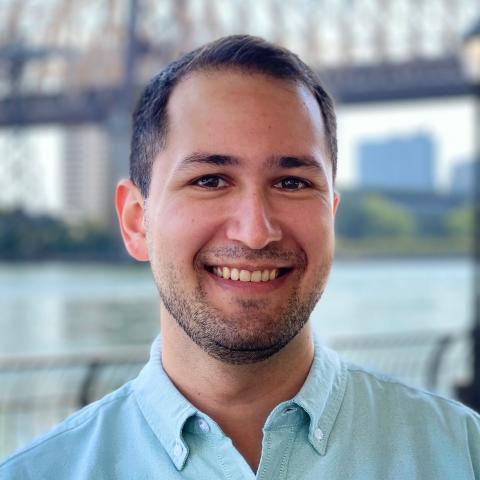Benjamin Deen, Ph.D.
Assistant Professor

Education & Affiliations
Biography
Dr. Deen’s laboratory studies how we perceive and reason about other people, using cognitive neuroscience methods including neuroimaging and behavioral testing. Humans have a particularly sophisticated understanding of other people. We explain others' behavior in terms of its underlying causes - mental states like beliefs and desires - using a theory of mind. We store information about familiar people in long-term memory, and use this person knowledge to tailor our explanations and predictions to specific individuals. Dr. Deen’s research asks what processes in the mind and brain support this impressive social understanding. The lab's methodological focus is on functional magnetic resonance imaging (fMRI), using a precise characterization of organization in individual brains to ask questions about the functional architecture of high-level cognition. The lab also employs specialized methods for scanning human infants, to study the early development of brain areas involved in social understanding.
Dr. Deen is currently accepting graduate students through the Psychology and Neuroscience Ph.D. programs.
Lab Website
Office
3039 Percival Stern Hall
Selected Publications
Deen, B., Saxe, R., Kanwisher, N.G. (2020). Processing communicative facial and vocal cues in the superior temporal sulcus. NeuroImage, 221(1), 117191.
Deen, B., Saxe, R. (2019). Parts-based representations of perceived face movements in the superior temporal sulcus. Human Brain Mapping, 40(8), 2499-2510.
Deen, B., Richardson, H., Dilks, D., Takahashi, A., Keil, B., Wald, L., Kanwisher, N.G., Saxe, R. (2017). Organization of high-level visual cortex in human infants. Nature Communications, 8, 13995.
Deen, B., Koldewyn, K., Kanwisher, N.G., Saxe, R. (2015). Functional organization of social perception and cognition in the superior temporal sulcus. Cerebral Cortex, 25(11), 4596-4609.
